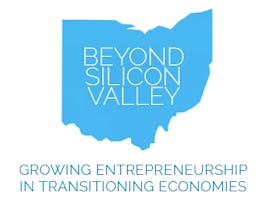Entrepreneurship
Earn Your Degree
Creating Business with Positive Societal Impact
Most Popular Courses
Get a Head Start on Your Degree Today
Top Rated Courses
Data Driven Decision Making
Technology Driven-Innovation
Most Popular Certificates
Frequently Asked Questions about Entrepreneurship
If you're looking for free resources to learn the basics of entrepreneurship, Coursera has some great courses. Check out the Entrepreneur Guide for Beginners to get started. Then, move on to learn how to launch an online business with the Launch Online Business course. Also worth exploring is the Social Entrepreneurship: Getting Started course, which will help those interested in pursuing social entrepreneurship. Finally, check out the Startup Financing Without VC and Design Strategy courses if you're looking to delve deeper into developing and financing your own business.
For those looking to enter the world of entrepreneurship, the Wharton Entrepreneurship Specialization from the University of Pennsylvania is one of the best beginner courses available. It is ideal for aspiring entrepreneurs, as well as those already in business. Alternatively, Start Your Own Business is an excellent course covering the basics of business ownership. Technology Entrepreneurship Specialization provides an introduction to technology entrepreneurship, while Entrepreneurship Strategy brings together key concepts from management and economics. Finally, the Startup Entrepreneurship Specialization provides an overview of the process of transforming an idea into an entity with the potential for exponential growth.
If you are looking for advanced entrepreneurship courses, Coursera provides a variety of options to suit your needs. Specializations in Innovation & Entrepreneurship can give you an understanding of the essential components of developing successful products or services in a competitive environment. With the Open Innovation & Entrepreneurship course, you can learn how to build ecosystems to foster innovation and drive organizational success. Alternatively, you can explore the Healthcare Entrepreneurship: Taking Ideas to Market course to understand how to apply the principles of design thinking to healthcare and business. Alternatively, you can gain insight into corporate entrepreneurship with the Design Thinking & Entrepreneurship course and adhere to best practices with the Corporate Entrepreneurship course.
Entrepreneurship isn't just a trendy buzzword - it's a powerful force for innovation that is changing our world and creating new business opportunities every day. Entrepreneurs create new businesses, whether it's inventing new products, offering new types of services, or simply developing new processes for connecting existing goods and services to markets.
Today, we often associate entrepreneurship with the tech industry and venture capital-backed startups like Facebook and Tesla (and their superstar founders Mark Zuckerberg and Elon Musk). However, this skill can be relevant regardless of your career path; social entrepreneurship is essential for non-profit founders, corporate entrepreneurship can help drive innovation and spin-off divisions from within established multinational giants, and everyday small business owners can take their company to the next level with entrepreneurial skills.
No matter where your entrepreneurial path takes you, they all begin in the same place: with a vision for a new business idea. But turning that idea into a profitable business requires a lot more than that!
Successful entrepreneurs must have the passion as well as the skills to turn their vision into a viable business. That means creating a business model that identifies your customers, revenues, and expenses, as well as a realistic business plan that strategically maps out the future trajectory of your company.
Another key consideration for entrepreneurs is funding. While many startups begin by bootstrapping, entrepreneurial ventures usually need to tap into other sources of financing as they grow. Typical types of financing include angel investors, venture capital, and private equity, and choosing the right funding strategy for each stage of your business's development is a critical skill for aspiring entrepreneurs.
Yes, there are online courses and short Guided Projects available to help you develop the skills you need at every stage of your entrepreneurship journey. If you're trying to refine your world-changing business idea, courses can help you get in the entrepreneurial mindset, generating the inspiration and creativity you need to think outside the box and identify new opportunities for innovation. Once you've got your vision, more practical courses can help with things like the process of launching your startup, business modeling and planning, lean startup principles, and change management. And when you're ready to bring in outside investors, online courses can help with startup valuation and financing strategy.
The main thing you need before learning about entrepreneurship is a passion for starting or growing your own business. However, you can benefit from previous experience, particularly in the business world. Experience in the industry or niche that you're interested in creating your own business in can also be helpful. Other skills or experience in areas like data analysis, marketing, management, or finance can also help prepare you to learn about entrepreneurship.
People who want to be their own bosses are best suited for roles in entrepreneurship. It helps if you are inquisitive about the business world and potential consumers and have a desire to deliver a product or service that can help fix a problem. Those who choose to become entrepreneurs should be strategic thinkers, problem solvers, and good time managers. You should also have good interpersonal and communication skills, and you can't shy away from networking. You should also be resilient. A new business is rarely an immediate success, so you may deal with many failures and rejections before you meet your goals.
The most natural career path for someone who learns about entrepreneurship is to start or grow their own business. But there are many other options. You may just want to work your way up to mid-level management at your current job and entrepreneurship skills can help you do that. It can also lead to careers in areas like sales, research and development, fundraising, and recruiting. If you're interested in journalism, you may choose to become a business writer or reporter. You can also teach entrepreneurship at the high school or postsecondary levels, or you may choose to become a business consultant for other businesses.
Any type of business topics can help supplement your entrepreneurship studies. These might include accounting, finance, international business, sales, human resources, marketing, project management, supply chain, economics, business administration, or ecommerce. You may also choose to study topics related to the specific industry you're interested in. For example, if you want to open your own real estate firm, you may consider studying more about real estate law, mortgage banking, and construction and planning. If you want to open your own ecommerce store, you may consider learning more about digital marketing, web design, or graphic design.
Online Entrepreneurship courses offer a convenient and flexible way to enhance your knowledge or learn new Entrepreneurship skills. Choose from a wide range of Entrepreneurship courses offered by top universities and industry leaders tailored to various skill levels.
When looking to enhance your workforce's skills in Entrepreneurship, it's crucial to select a course that aligns with their current abilities and learning objectives. Our Skills Dashboard is an invaluable tool for identifying skill gaps and choosing the most appropriate course for effective upskilling. For a comprehensive understanding of how our courses can benefit your employees, explore the enterprise solutions we offer. Discover more about our tailored programs at Coursera for Business here.






























































































































